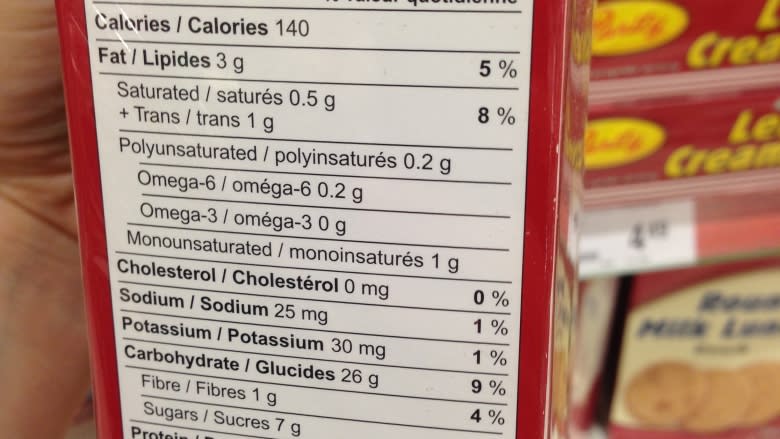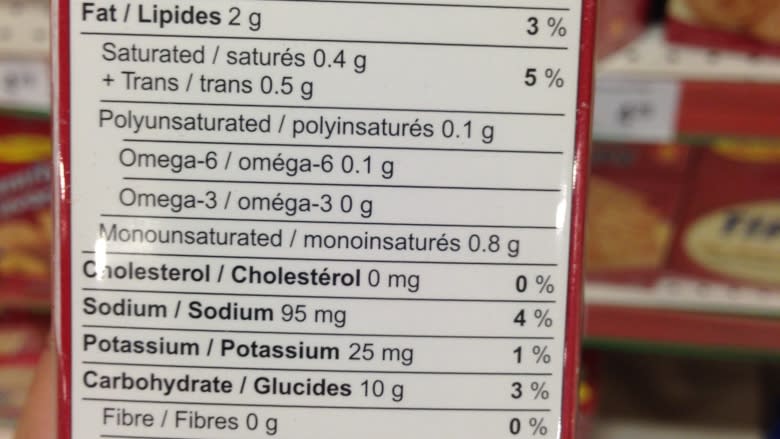Trans fats fading from Canada's food supply, but persist in Atlantic Canada
Trans fats are fading from the Canadian food supply, but the unhealthy fat is still showing up on supermarket shelves in Nova Scotia.
A CBC review of grocery stores around the Halifax region last month found a number of products that exceeded recommended trans fat levels.
One of those products was a pound cake in a Halifax grocery store made by Glace Bay bakery McFadgen's. The cake's trans fat levels are more than five times Health Canada's recommended maximum, which is five per cent of total fat.
Owner Darren McFadgen said butter is too expensive to use in all the bakery's products, and other trans fat-free options have been "a disaster."
"We were doing a test batch of products [with trans fat-free shortening] and we ended up with, I think it was 5,000 or 6,000 pound cakes, they went right to the bears at Two Rivers Wildlife Park," he said.
"The new emulsifiers didn't work: the cakes collapsed, they were ugly, they were gummy, they were chewy."
Trans fats also appear in products made by Purity and West Tower Bakery in Newfoundland, Mrs. Dunster's in New Brunswick and Snairs (which is also owned by Mrs. Dunster's) in P.E.I.
Grocery stores also produce products that contain high levels of trans fats, including a Signal brand margarine made by Sobeys in which trans fats are 31.5 per cent of the total fat. Health Canada's recommended maximum for margarine is two per cent.
Mrs. Dunster's and Sobeys did not respond to requests for comment.
Risk of cardiovascular disease
On Monday, federal Health Minister Jane Philpott announced that Health Canada would be taking more steps to remove trans fats from the food supply.
Research shows that industrially produced trans fats dramatically increase the risk of heart disease for consumers.
"We see an increased cardiovascular risk and that's the main thing we're worried about," said Kate Comeau, spokesperson for Dieticians of Canada.
"The other thing we see is increased risk of all core cause mortality, so the more trans fats you're consuming, the higher the risk of death in a certain period of time."
Responding to consumer pressure, most large food producers have already eliminated trans fats from their products; as much as 95 per cent of packaged food is now trans fat free, and many restaurants have moved away from trans fats in their products and for cooking oil.
'Undisputed' recommendation
Comeau said although trans fat levels have declined significantly in recent years, Canada-wide monitoring, which has not been carried out since 2009, is important in making sure that reductions continue.
Comeau also said education is needed to make sure that small businesses and consumers are aware of the risks of trans fats — and how to avoid them.
"It's a small change you can make at home or in your purchasing that can have an impact on your health," said Comeau, and unlike many other dietary recommendations, "it's a fairly undisputed one."





